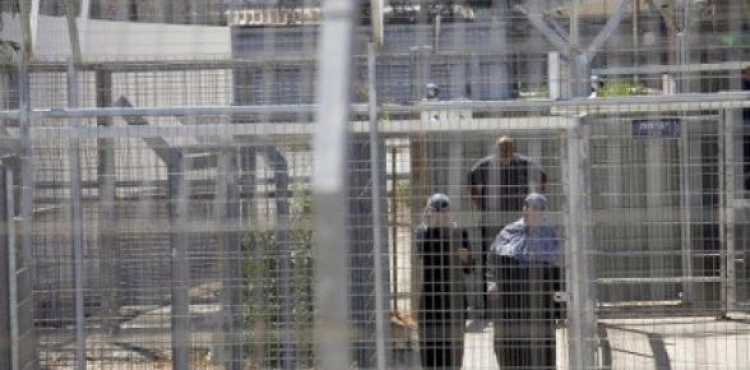Abdel Nasser Farwana, a specialist in prisoners´ affairs, said today, Wednesday, that with the continuation of the Corona crisis and the entry of the blessed month of Ramadan, there are (40) Palestinian women prisoners who are dying of pain and deprivation in the prisons of the Israeli occupation, among them (17) From mothers.
In a press statement to him, Farwana explained that among the female prisoners (13) are women from Jerusalem, (6) are women from inside, two from the Gaza Strip, and the rest (19) are from the West Bank.
And that (26) female prisoners serve different rulings, and (11) women are arrested, in addition to (3) female prisoners who are in administrative detention, and they are: Bushra Al-Tawil and Shada Hassan from Ramallah, Shurooq Al-Baden from Bethlehem.
He pointed out that among the female prisoners, there are (8) women prisoners who have been subjected to rulings in excess of 10 years, and (9) other women prisoners who have been subjected to sentences ranging between 5 years and less than 10 years, and the two ruling families, Shurooq Duyat, from Jerusalem, and Shatila Abu Ayyad from Territories occupied in 1948, sentenced to 16 years imprisonment, and the two prisoners, Aisha Al-Afghani, and Maysoon Musa al-Jabali, sentenced to 15 years imprisonment.
Farwana pointed out that the prisoner, "Amal Jihad Taqqaqa", is considered one of the oldest female prisoners, and she is from Beit Fajjar in the Bethlehem governorate, and she has been detained since December 2014 and is serving an effective prison sentence of 7 years.
Farwana pointed out that there are sick and wounded female prisoners suffering from difficult health conditions without receiving adequate care and appropriate treatment, the most prominent of which is the prisoner "Israa Al-Jaabees" from Jerusalem, who is 34 years old, and arrested a wounded person on October 11, 2015, and was sentenced to effective imprisonment for a period 11 years on a charge she was accused of, when a gas cylinder in her car exploded near a military checkpoint as a result of the occupation forces firing at her car, and with the explosion, her car caught fire and burns her body, and she was wounded first, second and third degrees in 50% of her body, explaining She needs health care and more surgeries, and her suffering is exacerbated by the persistence of a policy of deliberate medical neglect.
He pointed out that the Palestinian woman was subjected to an Israeli campaign of arrests in different forms and methods, as well as severe physical and psychological torture and torture, and imposed prison sentences, heavy fines, administrative detention, and house arrest, noting that the Prison Authority Administration does not take into account the needs of female prisoners in light of the corona and the entry of the month Decent, what increases their suffering.
He stated that since the Coruna virus crisis, the occupation authorities announced the introduction of the emergency system, and that this included canceling visits to families and lawyers, and since the beginning of this month, the prisoners have been allowed to make phone calls to the family, intermittently and not continuously.
And Ferwana pointed out that the administration of the Damon Prison usually intentionally restricted the female prisoners during the month of Ramadan, and did not allow them to pray in groups or conduct educational and religious seminars in the square of the oath (Al-Furah), and it also deprived them of reciting the Holy Qur’an collectively and in a public voice, while they did not allow them - Until now - by entering dates, sweets and summer clothes from abroad.
Farwana called on all human and human rights institutions to put pressure on the occupation authorities to provide adequate medical care and necessary treatment for the sick and wounded, and to take all protection and prevention measures to protect them from the risk of infection with "Corona" virus, and to provide the rest of hygiene and sterilization requirements, and to enter spring and summer clothes, in addition to the necessity End preventing some female prisoners from making phone calls with the family, and increasing the number of calls assigned to each female prisoner and the duration of the call, partly compensating for the stopping of visits and relieving the growing anxiety of both parties due to "Corona", and reducing the effects of heat Man and suffering in the blessed month of Ramadan.












